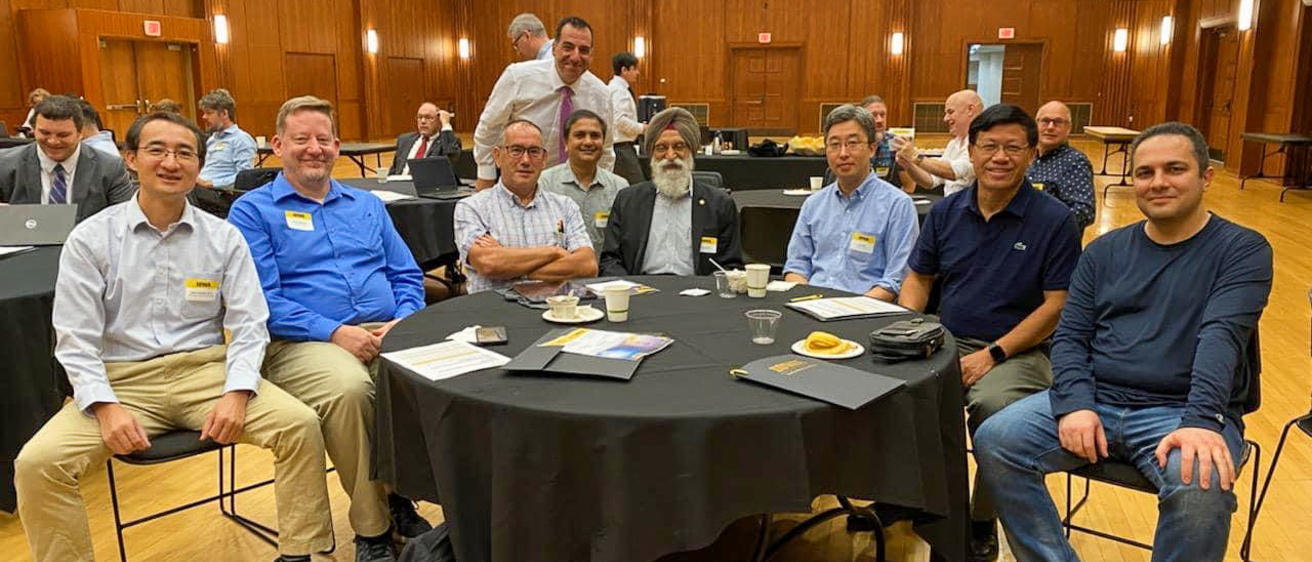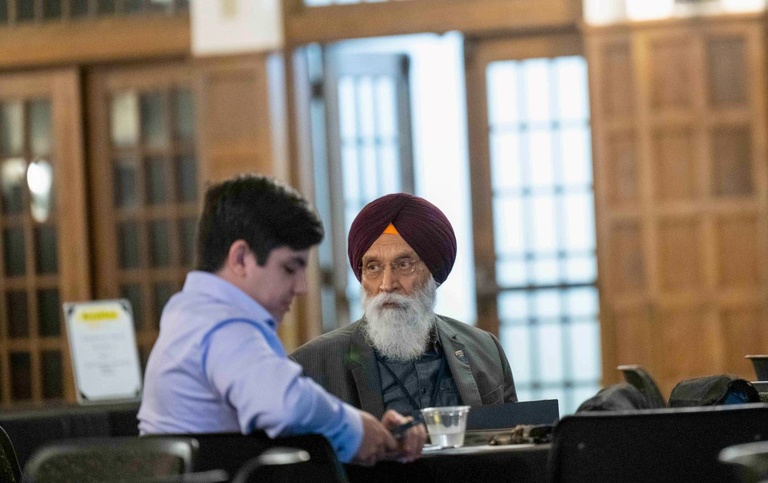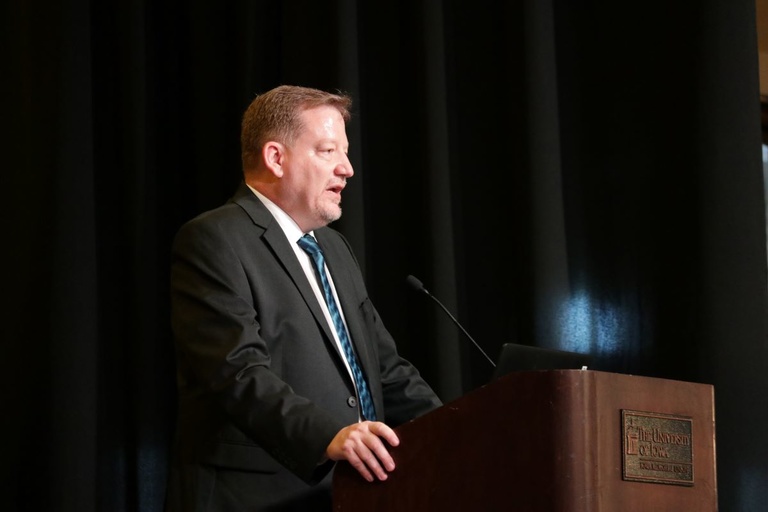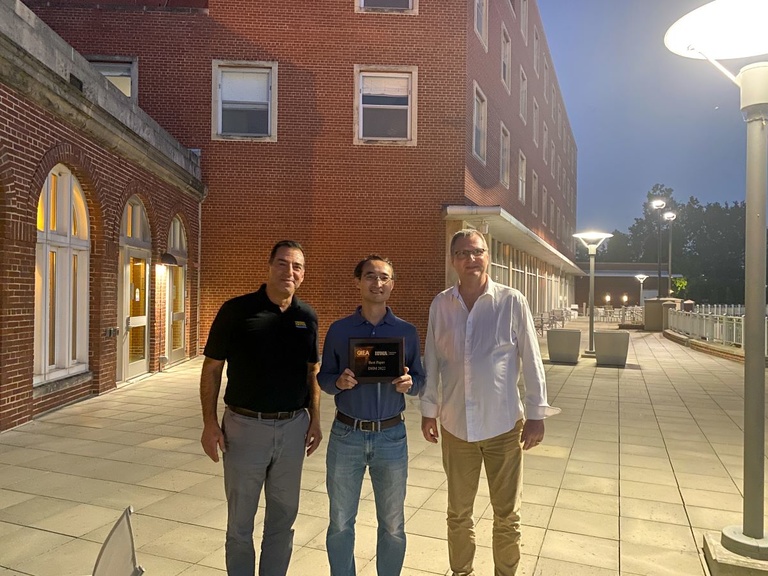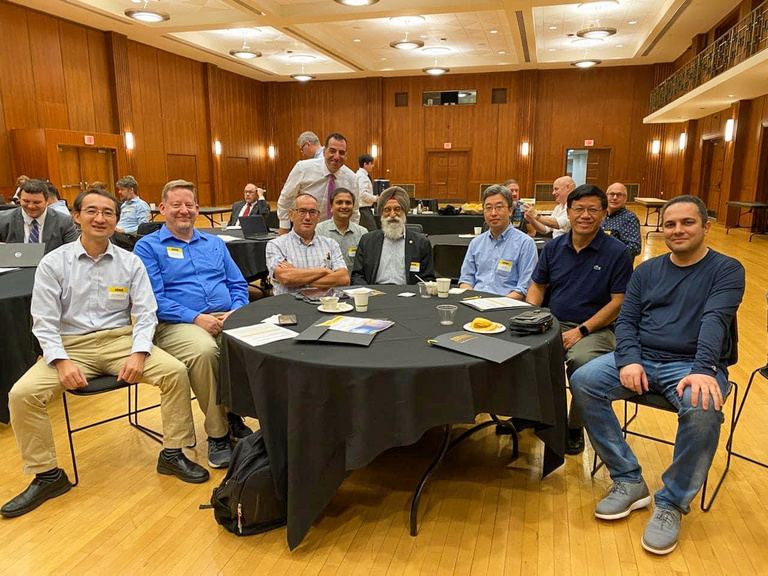The University of Iowa Technology Institute (ITI) hosted the 7th International Digital Human Modeling Symposium (DHM) in collaboration with the International Ergonomics Association (IEA) Technical Committee. The 3rd annual Iowa Virtual Human Summit (IVHS) presented by Booz Allen Hamilton was held immediately following.
The three-day event occurred on Aug. 29-31, 2022, at the Iowa Memorial Union in Iowa City, with a virtual option for those who could not attend in person. DHM focused on academic advancements in the field of digital human modeling, while IVHS focused on industry application.
ITI was selected to host DHM 2022 by the IEA Technical Committee. The symposium had most recently been held in Skövde, Sweden; Montreal, Canada; and Tokyo, Japan. ITI Director Karim Malek was the chairperson of DHM 2022. DHM co-chair was Gunther Paul, adjunct associate professor at the Australian Institute of Tropical Health and Medicine.
DHM 2022 proved to be a reunion for Virtual Soldier Research (VSR), an ITI research center that has led the way for digital human modeling research at UI and beyond. VSR is well known for Santos and Sophia – physics-based, biomechanically accurate human avatars that specialize in human behavior prediction.
VSR and UI alumni to visit included Esteban Peña, Joo Kim (00BSE, 05MS, 06PHD), Jingzhou “James” Yang (03MCS, 03PHD), Mahdiar Hariri (12PHD), and Xianlian Alex Zhou (07PHD). Also in attendance were current VSR members Chris Murphy, Rajan Bhatt, Marco Tena Salais, emeritus professor Jasbir Arora, and Malek, who directs the VSR research group.
The event was especially sweet for Zhou, who earned a PhD in mechanical engineering at UI in 2007 under advisor Jia Lu and conducted research at VSR. Not only was Zhou able to reconnect with his former campus, he earned the “best paper” award for DHM 2022.
“It feels great to come back to Iowa City and meet so many old friends and professors who I had interactions with,” said Zhou, associate professor of biomedical engineering at the New Jersey Institute of Technology. “I especially enjoyed walking around the campus like I did so many times about 15 years ago. On top of that, winning the award is a surprise but also a special honor that I will always feel proud of. Go Hawkeyes!”
Zhou presented a study examining a predictive simulation model intended to find optimal assistance from exoskeleton devices to lower-limb joints such as hips, knees, and ankles, in order to significantly reduce the metabolic cost of human walking.
DHM included 50 peer-reviewed presentations. University of Iowa Libraries published conference proceedings. They are available at https://pubs.lib.uiowa.edu/dhm/. A selection committee carefully reviewed the presentations and named winners in four categories.
More than 100 people registered for the event, with approximately half participating remotely and the other half in person. The in-person audience included attendees from approximately seven countries and 15 states within the U.S. The virtual audience expanded representation to more than 13 countries and 20 states domestically.
